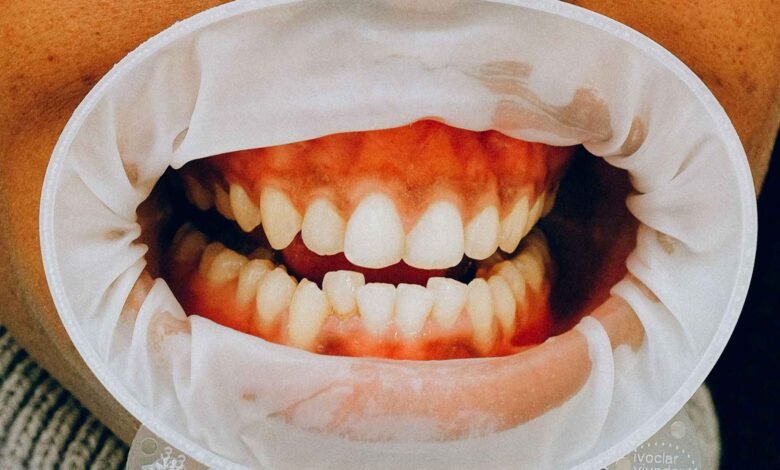How Long Can You Keep Your Teeth With Periodontal Disease

Periodontal disease, also known as gum disease, is a chronic inflammatory condition that affects the supporting structures of the teeth, including the gums, bones, and ligaments. It is caused by a bacterial infection that attacks the gums, leading to inflammation and destruction of the surrounding tissues. Periodontal disease is one of the most common dental problems, affecting millions of people worldwide. If left untreated, periodontal disease can lead to tooth loss and other serious health problems. In this article, we will discuss how long you can keep your teeth with periodontal disease.
Understanding Periodontal Disease
Periodontal disease is a progressive condition that begins with inflammation of the gums. More than half of US citizens have some sort of gum disease. The early stage of periodontal disease is known as gingivitis, which is characterized by red, swollen, and bleeding gums. Gingivitis can be easily treated and reversed with proper oral hygiene, including brushing and flossing, and regular dental cleanings.
However, if gingivitis is left untreated, it can progress to periodontitis, a more severe form of periodontal disease. Periodontitis is characterized by the formation of pockets between the teeth and gums, which can become infected and lead to the destruction of the surrounding bone and ligaments. As the disease progresses, the teeth can become loose and eventually fall out.
How Long Can You Keep Your Teeth With Periodontal Disease?
The answer to this question depends on the severity of the disease and the extent of the damage to the supporting structures of the teeth. In the early stages of periodontal disease, such as gingivitis, it is possible to reverse the condition and maintain healthy teeth and gums with proper oral hygiene and regular dental cleanings. Following these dental care regimens, one can keep the teeth for years.
However, in more advanced stages of periodontal disease, such as periodontitis, the damage to the gums, bone, and ligaments may be irreversible, and tooth loss may occur. The key to preventing tooth loss is early detection and prompt treatment of periodontal disease.
Factors Affecting the Progression of Periodontal Disease
The progression of periodontal disease can vary from person to person and depends on several factors, including:
- Oral Hygiene: Proper oral hygiene is crucial in preventing and controlling periodontal disease. Regular brushing and flossing can help remove plaque and bacteria from the teeth and gums, reducing the risk of infection and inflammation. Also, make sure to avoid using toothpicks.
- Smoking: Smoking is a significant risk factor for periodontal disease. It can damage the gum tissues, reduce blood flow, and impair the immune system, making it more difficult for the body to fight off infection and inflammation.
- Genetics: Some people may be more susceptible to periodontal disease due to genetic factors. Research has shown that certain genetic variations can increase the risk of developing periodontal disease.
- Age: As we age, our immune system may become weaker, making us more susceptible to infections such as periodontal disease.
- Systemic Health Conditions: Certain systemic health conditions, such as diabetes and heart disease, can increase the risk of developing periodontal disease and can also worsen the condition.
Treatment Options for Periodontal Disease
The treatment for periodontal disease depends on the severity of the condition. In the early stages of the disease, such as gingivitis, the treatment may include:
- Professional Dental Cleaning: A professional dental cleaning can help remove plaque and tartar from the teeth and gums, reducing the risk of infection and inflammation.
- Scaling and Root Planing: Scaling and root planing is a non-surgical procedure that involves removing plaque and tartar from below the gum line and smoothing the tooth roots to promote healing and prevent further infection.
- Antibiotics: In some cases, antibiotics may be prescribed to help control bacterial infection and reduce inflammation.
In more advanced stages of periodontal disease, such as periodontitis, the treatment may include:
- Surgery: Periodontal surgery may be necessary to remove deep pockets, reduce gum inflammation, and regenerate bone and tissue that has been lost due to the disease.
- Bone Grafting: If the bone supporting the teeth has been lost due to periodontal disease, bone grafting may be necessary to regenerate new bone tissue.
- Guided Tissue Regeneration: This is a surgical procedure that involves using a membrane to promote the growth of new bone and tissue in areas where it has been lost due to periodontal disease.
- Laser Therapy: Laser therapy is a non-surgical treatment option that uses lasers to remove infected tissue and promote healing.
Prevention of Periodontal Disease
Prevention is the best way to avoid periodontal disease and maintain healthy teeth and gums. Some tips for preventing periodontal disease include:
- Brushing twice a day and flossing daily
- Using an antiseptic mouthwash
- Quitting smoking
- Eating a balanced diet
- Limiting sugary and acidic foods and drinks
- Visiting the dentist regularly for checkups and cleanings
Conclusion
In conclusion for the question, how long can you keep your teeth with periodontal disease? the simple answer is it is different for everyone depending on damage and severity.
Periodontal disease is a serious dental condition that can lead to tooth loss and other health problems. The length of time you can keep your teeth with periodontal disease depends on the severity of the condition and the extent of the damage to the supporting structures of the teeth. The key to preventing tooth loss is early detection and prompt treatment of periodontal disease. By maintaining good oral hygiene and visiting your dentist regularly, you can prevent periodontal disease and maintain healthy teeth and gums for a lifetime.











